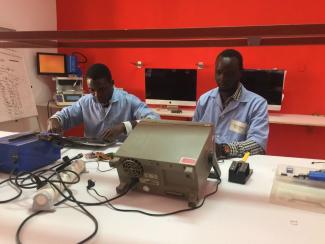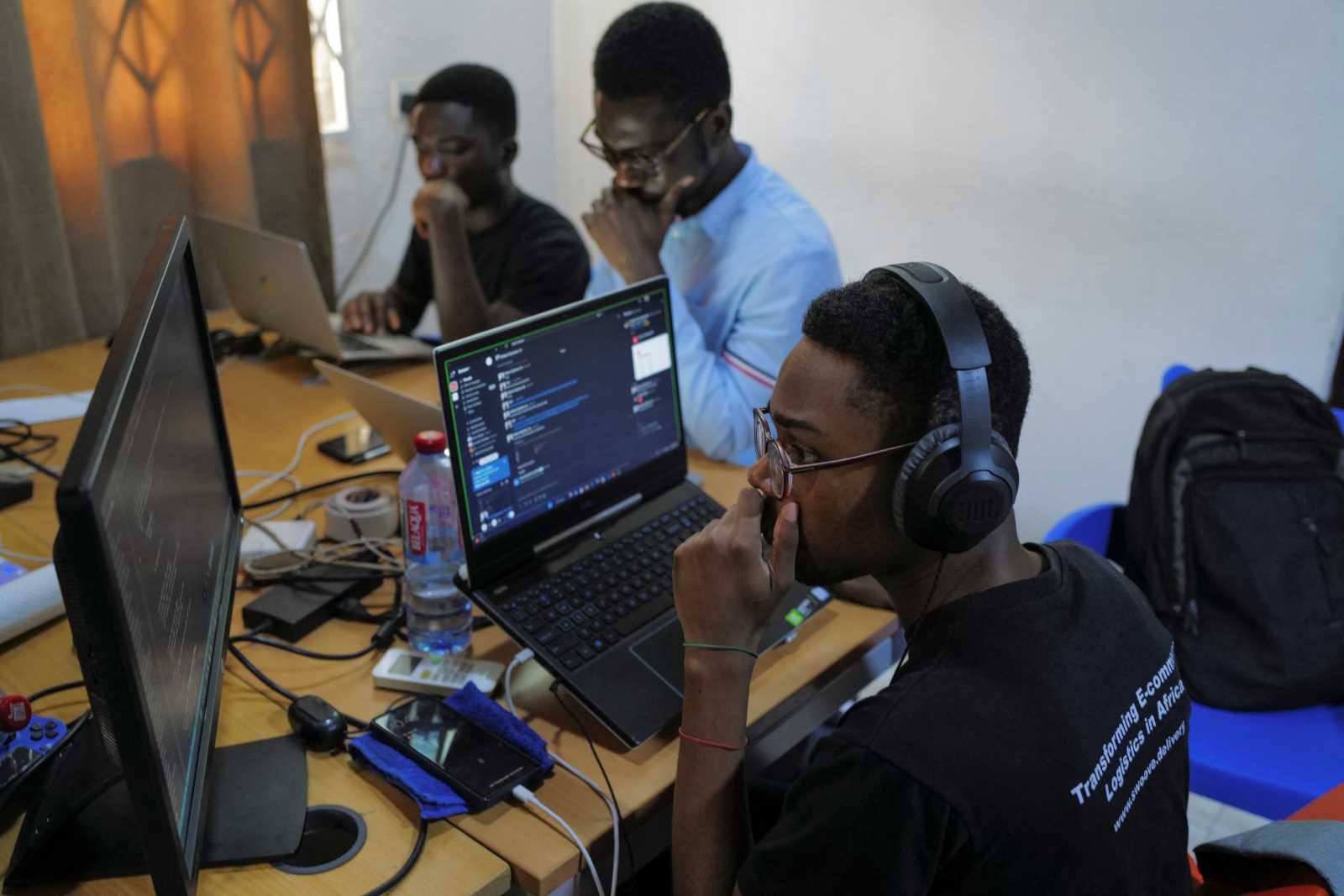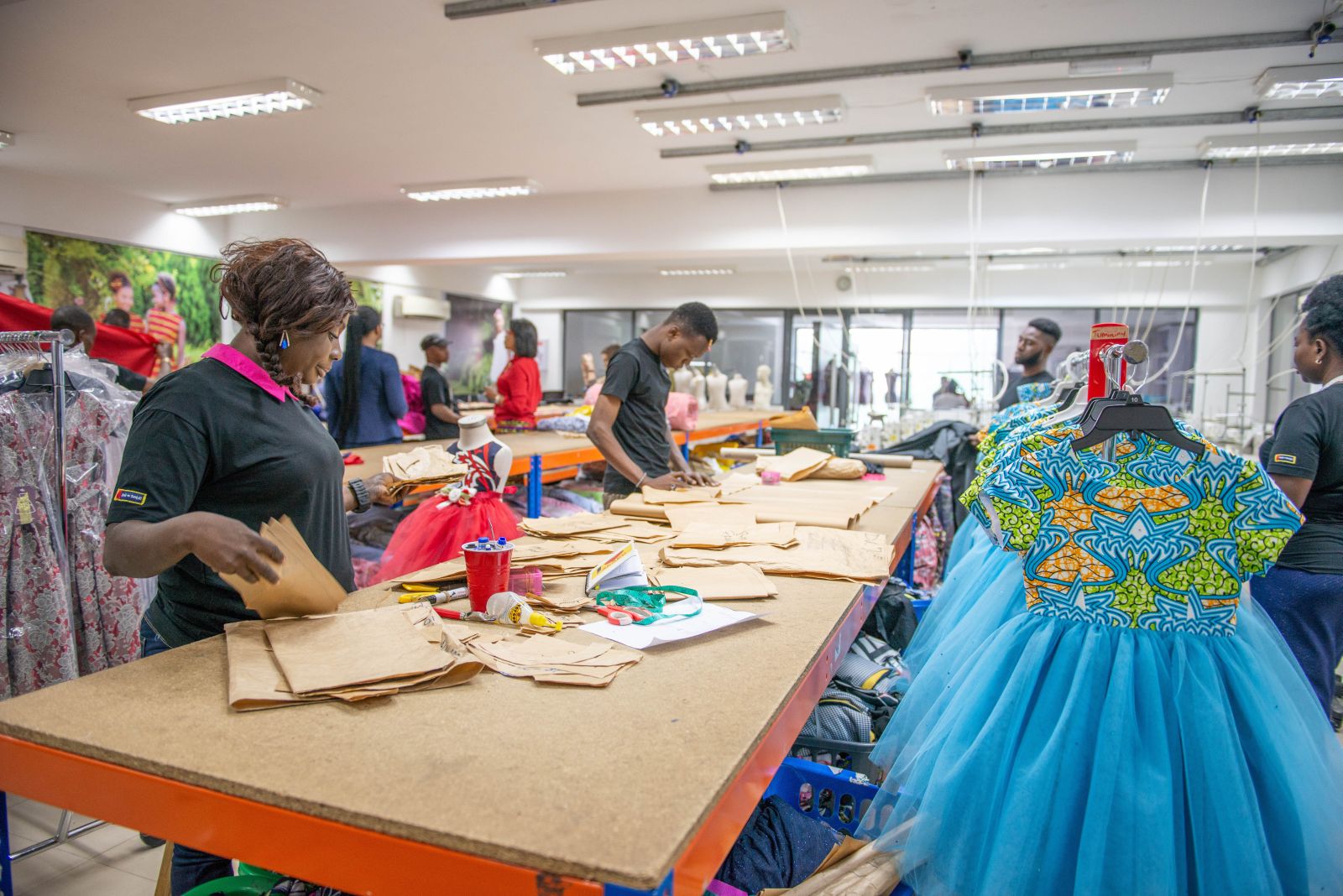Business incubation
Building digital nations

Leapfrogging can accelerate development dramatically. While only very few Africans have fixed-line telephones, West Africa alone now has about 185 million smart-phone users. Digital technology makes it possible to skip some stages of development that occurred in rich nations. It is therefore important that ever more young Africans have been leveraging technology in the past 20 years. They have found digital solutions for improving people’s access to financial services or health information for example.
Tech hubs support this trend. They offer a range of services to entrepreneurs, including workspace, mentoring, technical tools, infrastructure, training, networking and access to funding.
According to the GSMA, an international trade organisation of mobile-phone operators, the number of tech hubs in Africa doubled to 618 in the years 2016 to 2019. In Senegal, the CTIC incubator founded in 2011 has supported more than 170 start-ups. In Ghana, the Meltwater School of Technology (MEST) was created in 2008 and is considered to be one of the most dynamic tech incubators in West Africa. It combines business training with tech expertise and seed funding (see interview with Veronica Mulhall in the Focus section of D+C/E+Z e-Paper 2020/01).
A tech hub’s impact depends on many things. To what extent they can generate jobs and incomes is determined by external and internal factors. The external factors include an economy’s maturity, public policies, the availability of skilled personnel and the business climate in general (also see SalaMartu Duncan and Michael Konow in Focus section of D+C/E+Z e-Paper 2020/01). Internal factors include how a tech hub is managed, what legal status it has, what it specialises in and other matters.
Most West African tech hubs are quite young, and so are the companies they have incubated. Most were launched within the past five years. They typically specialise in fin tech (financial technology), e-agriculture, e-health, e-logistics et cetera.
There is definitely a new culture of African entrepreneurship. To what extent it will transform labour markets and entire economies remains to be seen. They are not expected to generate significant number of jobs themselves, but they are likely to boost the development of other sectors and value chains. The risk level of young start-ups is high, and success rates are low. Typically the companies are quite small and only employ a handful of highly educated staff. They hardly hire workers with low or even no skills. At the same time, these tiny companies may well enhance long-term value creation in various sectors.
That is happening in agriculture for example. Innovative fin-tech applications now give farmers the access to credit that they traditionally lacked. With a similarly useful impact, small start-ups with only two or three employees have launched e-agriculture platforms that provide accurate information concerning market prices or humidity, considerably improving their livelihoods.
Access to early-stage funding is one of the biggest challenges young entrepreneurs face. Commercial banks shy away from lending to young entrepreneurs who may have an interesting, but untested idea, but lack a business track-record and proven management skills. Tech-hub support enhances an entrepreneur’s eligibility for loans.
Governance matters
To really prove transformative, tech hubs and start-ups need a good business environment. Governments must build digital nations, capable of using technology well. They must ensure high-quality education and appropriate infrastructure. Laws and regulations have to be sensible – and they must be enforced properly.
Tech hubs can help to make these things happen. For example, they can provide public authorities with insights concerning how to reform education systems. Universities, for example, should not simply train engineers. They should cooperate closely with tech hubs and private businesses in general, sharing resources and research results.
Most African tech hubs are privately owned. They must cover their costs and make profits. One implication is that they are sometimes overly careful in choosing what start-ups to promote. The long-term potential of an entrepreneur’s idea may matter less to them than whether that start-up will be able to pay the rent and the incubator fees.
Well-designed government action can make a difference in this respect. Therefore, Senegal’s recently established Délégation à l’Entreprenariat Rapide (DER) is promising. This new government agency is running a public investment fund in support of early-stage start-ups.
To a considerable extent, international development agencies are supporting tech hubs too. In 2016, the AFD (Agence Française de Développement) launched the Africa Innov# programme. Among other things, it grants interest-free loans to start-ups from selected West African tech hubs. The World Bank’s infoDev programme has created or supported hundreds of incubators across Africa. They deal with climate technology, agriculture and digital applications. GIZ recently announced a partnership with Orange, the telecoms multinational, to co-invest € 30 million in the Orange Digital Center. This incubation and training programme will be run in 14 countries, of which seven are West African.
It makes sense to include well-established private-sector companies in a tech hub’s ecosystem because it improves the outreach to different business sectors. The better a start-up is linked to existing companies, the more likely its innovations will be applied. Moreover, it is important to network internationally. Tech hubs should coordinate among one another, concerning, for example, what they specialise in. There is a policy dimension too. In exchange for subsidies, tech hubs could be made to work on the delivery and safeguarding of public goods for example.
It is important to identify what innovations have the greatest potential for driving job creation in other sectors and thus promote social inclusion in general. For this purpose, cooperation with different stakeholders, including government agencies and universities, is essential. Africa needs digital nations – and tech hubs, on their own, will not bring them about.
Ely Manel Faye is the founder and chief executive officer of SOLUTRONIQ, a Dakar-based company specialising in solutions for the internet of things (IOT). He would like to thank Ndongo Samba Sylla for support and advice concerning this essay.
ely.faye@solutroniq.com













